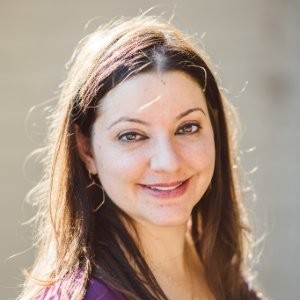
Eco-friendly cleaning supply company Method is known for pushing the envelope even in the sustainable business community: encouraging a work culture of "weirdness” to keep employees happy and recycling plastic litter from the Great Pacific garbage patch into product packaging.
Now the San Francisco-headquartered company is working on another cutting-edge initiative -- unveiling design plans for its first U.S. manufacturing plant that it hopes will be the first LEED Platinum certified factory in the consumer packaged goods industry.
Method, along with Chicago Mayor Rahm Emanuel, announced details of the new facility, set to be built on the city’s South Side, in a groundbreaking ceremony on March 4. The factory will create nearly 100 new manufacturing jobs for Chicago residents, and Method said it plans to recruit residents from the Pullman neighborhood where the plant is located.
"The opportunity to build our first manufacturing plant in Chicago marks a milestone in Method's journey of aligning our interests as a business with the interests of society and the environment," said Adam Lowry, co-founder and chief greenskeeper of Method, in a statement.
Indeed, whether or not the factory attains LEED Platinum status, its green design features, coupled with its benefits to the local community, will make Method’s plant a success story of sustainable business and the triple bottom line.
Set to be built at a former lumberyard that is now a brownfield site, the facility will include a refurbished wind turbine and a solar array that will generate about half of the plant’s annual electricity. Method’s eventual goal is to run the factory entirely on renewable energy.
The building will feature a transparent south-facing wall to reduce the need for artificial lighting and serve as a metaphor for Method’s corporate transparency. Method and its design partner William McDonough + Partners will choose environmentally responsible building materials endorsed by the Cradle-to-Cradle certification program.
Many of the factory’s green design elements will make it a good neighbor, said the plant’s lead architect William McDonough in a statement. The facility’s green roof will grow fresh fruits and vegetables for the local community, and 17 of the property’s 22 acres will be landscaped with native plants and remain as green space, which will revitalize the brownfield site and beautify the surrounding Pullman neighborhood.
Method and Williams McDonough + Partners aim to make the plant welcoming to the local community, installing a sidewalk around the property rather than a fence and inviting the public inside for tours of its eco-friendly manufacturing process.
"We have these images of factories as gritty buildings with smokestacks — facilities that no families would want in or near their neighborhoods … Method’s new factory is a living dedication to clean in as many ways as possible; think about a tree -- it produces oxygen, absorbs carbon, purifies water, produces food and transforms solar energy."This factory is a clean factory. The energy will be clean. The water will be clean. The production will be clean. The building will be full of daylight and fresh air. The products made here are as clean as anyone can make them and help people have beautifully clean places to live," McDonough said in a statement.
Method currently works with other U.S. manufacturers to make their products, so the new factory will be the first manufacturing facility the company owns and operates.
Method’s new investment indicates that even when business is booming for the company that was acquired by Ecover in 2012, the green business will remain true to its roots and expand in an environmentally and socially responsible way.
“Building our world-class factory is an important evolution in our company’s growth and we hope it serves as a model of what manufacturing and urban revitalization looks like in the 21st century,” said Method CEO Drew Fraser in a statement. “We aim to show that sustainable business is better business by creating an advanced, flexible and cost-effective facility that will fuel both the growth of our business and the renewal of the Pullman area.”
Image credit: Method
Passionate about both writing and sustainability, Alexis Petru is freelance journalist based in the San Francisco Bay Area whose work has appeared on Earth911, Huffington Post and Patch.com. Prior to working as a writer, she coordinated environmental programs for Bay Area cities and counties. Connect with Alexis on Twitter at @alexispetru

Passionate about both writing and sustainability, Alexis Petru is freelance journalist and communications consultant based in the San Francisco Bay Area whose work has appeared on Earth911, Huffington Post and Patch.com. Prior to working as a writer, she coordinated environmental programs for various Bay Area cities and counties for seven years. She has a degree in cultural anthropology from UC Berkeley.














